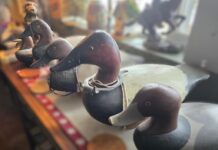Never having lived with a cow, I know almost nothing about cows — and I truly believe that unless you actually live with an animal, even another person, you know next to nothing about them.
It’s that day-to-day contact, not necessarily under the same roof, but better if that’s possible, which lets you “see” into their brains, their emotions, their good and bad habits, their good and bad moods.
New book
These thoughts about cows and what I didn’t know about them came to me while reading Temple Grandin’s with Catherine Johnson newest book, Animals Make Us Human, in which she delves into all the above factors and more of a variety of animals.
If you are not familiar with Grandin, Farm and Dairy writer Andrea Zippay wrote about her recently in connection with certification of the Niman Ranch in her program that guarantees humane animal treatment.
Publishers Weekly reviewed the book, writing, “Packed with fascinating insights, unexpected observations and a wealth of ‘how-to’ tips….ably challenges assumptions about what makes animals happy.”
Incidentally, Grandin acknowledges her autism, saying, “Autism made school and social life hard but it made animals easy,” noting it gave her an uncanny ability “to go inside the minds of animals.”
What I learned
Back to cows and what I learned about them, most of which all you dairy and beef folks already knew, or perhaps you didn’t.
Whereas a horse “is all about flight and fear since they are a prey animal,” cows are not “pure flight animals, although they are ever vigilant for predators.”
And while horses run from danger, cows seek safety in numbers or turn and fight with their horns.
Did you know (you probably did, but I didn’t) that cows have close relationships with their sisters, mothers and daughters? And mama cows are ferociously protective of their calves.
Grandin tells of mama cows and their calves in a Brazilian feedlot pen.
When no people were around, the calves squeezed under the fence to graze elsewhere but when visitors came, the mama cows would “bellow them home,” almost like shouting, “You come back here right now!”
(If you are an “animal person,” you’ll find the book fascinating.)
* * *
More on cows, this from The Journal of the Colonial Williamsburg Foundation: Did you know that the Colonial Williamsburg rare breeds program in the 1980s helped save American Milking Devons and now has 17?
Dwindled
By the 1970s, the world population of Devons had dwindled to fewer than 100. Thanks to individuals and organizations, like the Foundation, the global herd now numbers 600.
According to the Journal’s article by Ed Crews, the first red Devons imported from Devonshire, England, arrived in Massachusetts in 1623.
Records from the 1700s mention red cows being raised in Virginia, and colonists admired their calm dispositions, hardiness and intelligence.
They made good draft animals, could provide adequate milk and meat and their milk was turned into fine dairy products.
Today, they do well in many other states, and visitors to Colonial Williamsburg will enjoy seeing this historic breed.
* * *
It’s still too early to offer you the traditional hyacinth poem, but how about John Greenleaf Whittier’s lovely paean to spring:
The harp at Nature’s advent strung
Has never ceased to play…
The song the stars of morning sang
Has never died away…
* * *
A pair of geese and a pair of mallards returned to my pond March 1, bees were in the little purple crocuses on the 7th, and this morning, the 11th, a red-wing blackbird came to the porch.
Apache has been with me seven years today and is beginning to look his age, whatever age that might be, probably about 30.
Settled in
Toby is one caked ball of mud and loves adding layers, so there’s no point trying to clean him up and Bingo has very much settled in.
She is the “climbingest” cat I’ve ever had and should have been named Hillary! She and Winnie have touched noses, and all is well.
* * *
“The President of today is just the postage stamp of tomorrow.” So said Gracie Allen, a million years ago. Still true, though…












